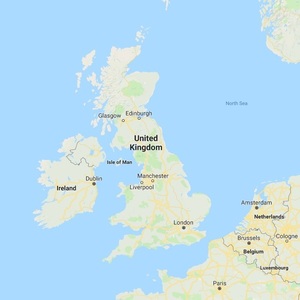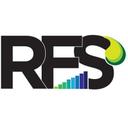UK SAF Mandate signed into law, government launches Jet Zero Taskforce

SOURCE: Google Maps
December 3, 2024
BY Erin Voegele
The U.K.’s sustainable aviation fuel (SAF) mandate was signed into law on Nov. 18 and is set to come into force on Jan. 1, 2025. The government has also launched a new Jet Zero Taskforce to revamp efforts to make greener air travel a reality.
The U.K. first announced plans to implement a SAF mandate in mid-2021. The Department of Transport in 2023 opened a public comment period on a proposed SAF mandate. The government earlier this year confirmed plans to move forward with the mandate.
The now finalized SAF Mandate will require 2% SAF beginning in 2025, ramping up to 22% by 2040. Hydroprocessed esters and fatty acids will be allowed to contribute up to 100% of SAF demand in 2025 and 2026, decreasing to 71% in 2030 and 35% in 2040. A requirement for SAF produced via power-to-liquid (PtL) technology will be introduced starting in 2028 at 0.2% of total jet fuel demand, increasing to 2.5% of total jet fuel demand in 2040.
The Jet Zero Taskforce builds on the previous Jet Zero Council and aims to support the production and delivery of SAF and zero emissions fuels, as well as look at how to improve aviation systems to make them more efficient. It will also explore the sector’s demand for greenhouse gas (GHG) removals and the non-CO2 impacts of aviation, such as vapor trails left in the sky, to account for the sector’s overall environmental impact. The taskforce will include high-level government officials along with the CEOs of major airlines, such as easyJet and Virgin, airports like Heathrow and Manchester, as well as fuel producers, trade bodies and leading universities.
Advertisement
The taskforce is set to hold its first meeting on Dec. 4. According to the U.K. government, SAF will be high on the agenda. Additional information is available on the U.K. Department of Transport website.
Advertisement
Related Stories
MOL Group has produced a diesel fuel containing hydrotreated vegetable oil (HVO), and sustainable aviation fuel (SAF) at the refinery of Slovnaft in Bratislava. The quality of the products has been verified by radioisotope analysis.
More than 1.76 billion renewable identification numbers (RINs) were generated under the Renewable Fuel Standard in January, down from 1.91 billion generated during the same period of 2024, according to data released by the U.S. EPA on Feb. 20.
The U.S. EPA on Feb. 20 released updated small refinery exemption (SRE) data showing that 13 previously denied SRE petitions for Renewable Fuel Standard compliance years 2021 and 2022 are being reconsidered. No new SRE petitions were filed.
A coalition of biofuel, agriculture, fuel retailer and petroleum trade groups on Feb. 19 sent a letter to U.S. EPA Administrator Lee Zeldin urging the agency to set robust, timely, multiyear RFS RVOs for 2026 and beyond.
OMV Petrom has announced the start of construction for a sustainable aviation fuel (SAF) and renewable diesel (HVO) production unit at the Petrobrazi refinery in Romania. The new facility will have an annual capacity of 250,000 tons.
Upcoming Events










